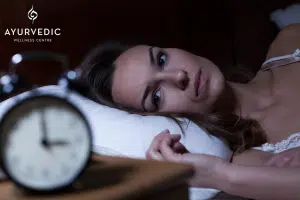Restless Leg Syndrome and Ayurveda
Experiencing itching sensations in your legs? Do you struggle to sit still, especially when in lying or sitting positions? You may be suffering from Restless Leg Syndrome (RLS), a genetic condition thought to effect 5-10% of the Australian adult population. Restless Leg Syndrome can dramatically interfere with sleep patterns and cause stress, anxiety and general discomfort. It exists in mild to severe forms, and has also been linked with iron deficiency. In fact, according to a 2007 study, 34% of clients suffering from iron deficiency also exhibit symptoms of Restless Leg Syndrome. The study revealed that this figure was just 6% in those without iron deficiency. Often, symptoms will come in waves rather than be present constantly. It is important to note that symptoms may also effect other parts of the body, including the arms, torso and head.
These symptoms may include:

Restless Leg Syndrome can be helped with Ayurveda in Sydney at the Ayurvedic Wellness Centre in Bondi Junction
- Itchiness
- “Pins and needles” and buzzing sensations
- Numbness
- Muscle aches
- General uncomfortable feelings in the limbs, arms or other body parts
- Twitching or jerking
- An uncontrollable desire to move, especially when sitting or lying down.
- A worsening of symptoms at night or whilst attempting to sleep
At Ayurvedic Wellness Centre, we firmly believe that treating the nuisance that is Restless Leg Syndrome can be a simple and natural process. In this article, we’ll give you some advice about managing Restless Leg Syndrome in your own home. We’ll also discuss how Ayurvedic practitioners can help you to treat the condition.
What can you do?
Luckily, it is easy to change your lifestyle in order to relieve Restless Leg Syndrome. You could try:
- Going for walks: Walking promotes the circulation of blood around the body and relieves tension in the calves and thigh muscles. Try not to over-exercise, however, as this may further aggravate your limbs.
- Stretching: Stretching helps to alleviate tension and is especially effective immediately before sleep.
- Reduce consumption of caffeine: Try to avoid caffeine as much as possible. Why not substitute your morning coffee for an energising fruit juice or a serve of green vegetables? This will help to revitalise your body in an all-natural way.
- Stay hydrated: Dehydration may aggravate Restless Leg Syndrome, so it is important to freely drink water throughout the day.
- Breathe deeply: Breathing more deeply will help to release tension and calm your body. You could also try doing some breathing exercises before going to bed.
Ayurveda’s role in treating Restless Leg Syndrome
Whilst Ayurvedic texts do not specifically address Restless Leg Syndrome, its symptoms closely relate to diseases in the Vata Vyadhi category. This is the traditional name given to conditions caused by an aggravation of the Vata dosha type. Therefore, this disease can be managed by avoiding the catalysts of Vata disorders. These catalysts include:
- Vyayama (over-exercising)
- Apatarpana (excessive fasting)
- Vyavaya (excessive indulgence in sexual activities)
- Ruksha (excessive consumption of dry foods)
- Tikta (excessive consumption of bitter foods).
In addition, Ayurvedic medicine has noted the similarities between Restless Leg Syndrome and Gridhrasi, another condition.
Like RLS, Gridhrasi is characterised by nerve pain in the lower limbs. Clients typically also experience itching, numbness and strange sensations in the legs. Treating Restless Leg Syndrome in the same way as Gridhrasi, through Abhyanga and Pizzichil, has proven effective for Ayurvedic practitioners. For more information about the treatments that we offer which help to relieve Restless Leg Syndrome, please follow the links above.
To find out more about how Ayurvedic Wellness Centre can help you to treat Restless Leg Syndrome, please call us on (02) 9389 2581.



